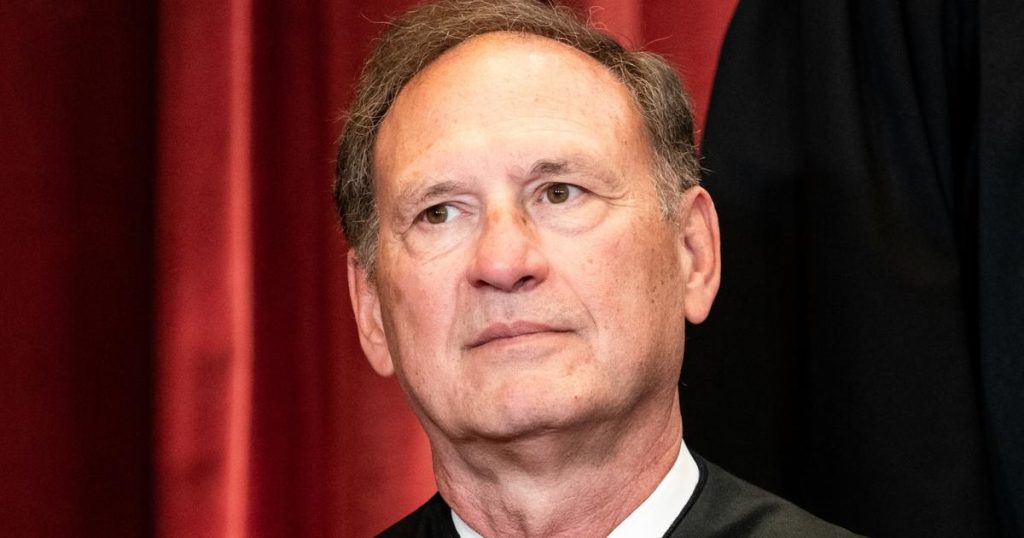Justice Samuel Alito is facing calls to recuse himself from two cases before the Supreme Court involving former President Donald Trump due to the flags that flew outside his homes. Democrats have argued that an upside-down American flag and a “Appeal to Heaven” flag create an appearance of impropriety and require Alito to step aside from these cases. However, Alito has consistently maintained that he had nothing to do with the flying of these flags, emphasizing that it was solely his wife’s decision. He has rejected calls for recusal, stating that the incidents do not meet the standard for recusal under the Supreme Court’s code of conduct.
Alito explained that his wife’s decision to fly the upside-down American flag in 2021 was not politically motivated but rather stemmed from a neighborhood dispute that caused distress to his wife. He highlighted that his wife, as a private citizen, has the same First Amendment rights as any American, and he respects her decisions. On the other hand, the “Appeal to Heaven” flag was also flown by Martha-Ann Alito, and Alito asserts that he had no involvement in this decision. He clarified that his wife did not fly the flag to associate herself with any specific group but rather to express a religious and patriotic message.
In response to the New York Times reports and calls for recusal, Alito addressed House and Senate Democrats in letters, stating that neither he nor his wife knew of the meanings now ascribed to the flags. He emphasized that his wife has the legal right to use their properties as she sees fit, and he could not have taken any additional steps to have the flags taken down more promptly. Alito pointed out that his wife has displayed a variety of flags in the past, including patriotic, college, sports team, and religious flags. He reiterated that Martha-Ann Alito is an independently minded private citizen who makes her own decisions.
Despite the pressure from Democrats, Alito firmly rejected the recusal requests, citing that a reasonable person not motivated by political or ideological considerations would not conclude that the incidents warrant recusal. He expressed his duty to reject the recusal requests and stood by his assertion that the incidents did not meet the standard for recusal under the Supreme Court’s code of conduct. Alito’s position is aligned with his previous statements from 2021, where he and his wife denied any political motive behind the flag displays and attributed them to private matters unrelated to the cases in question.
In light of the ongoing controversy surrounding the flags that flew outside his homes, Alito asserted his commitment to his judicial responsibilities and refused to step aside from the cases involving Trump and the Capitol riot. He pushed back against the calls for recusal, maintaining that the incidents did not implicate him in any ethical violation or create a conflict of interest. As the debate over Alito’s involvement in these cases continues, it remains to be seen how this situation will impact the Supreme Court’s decision-making process and public perception of judicial integrity.














